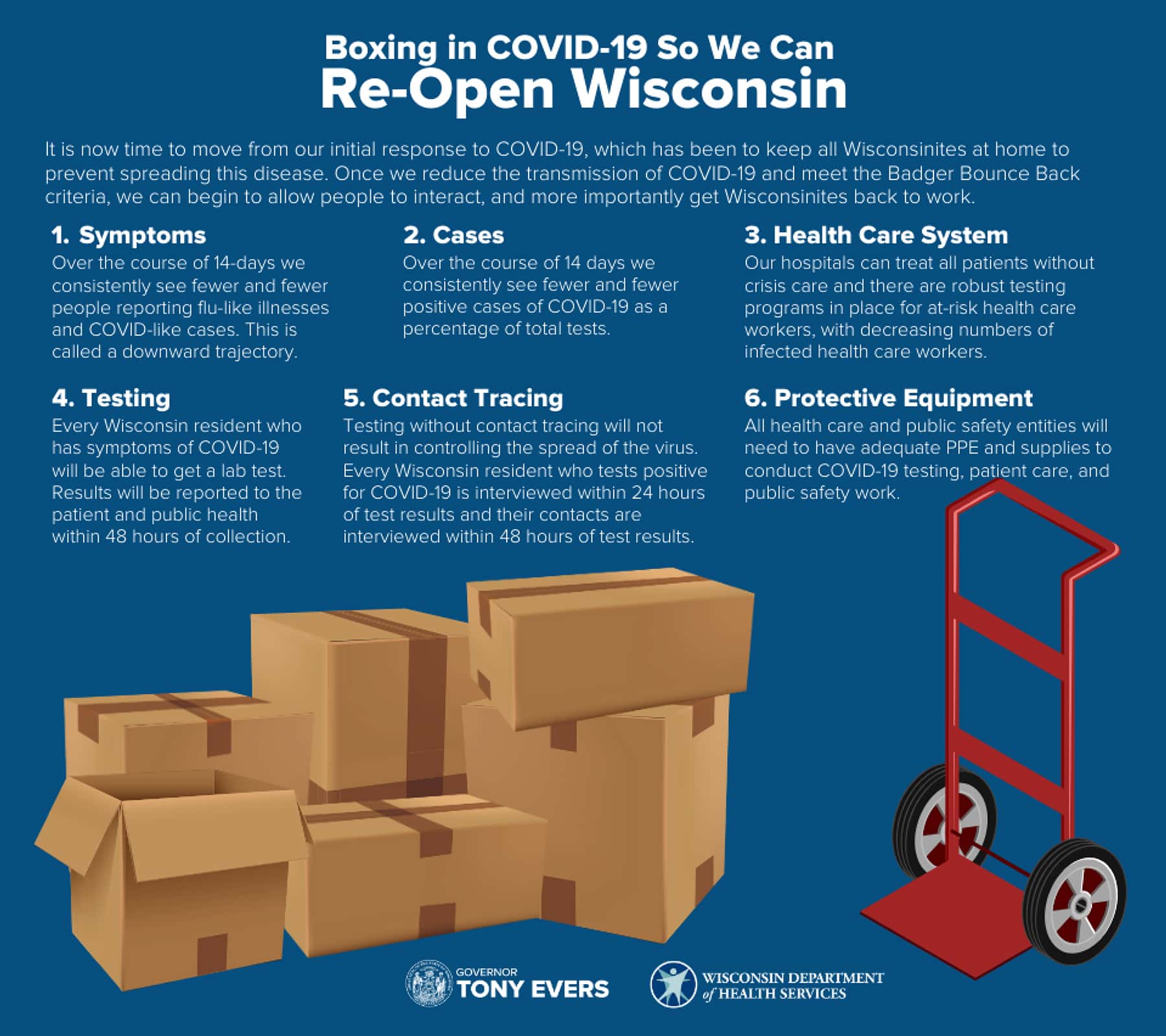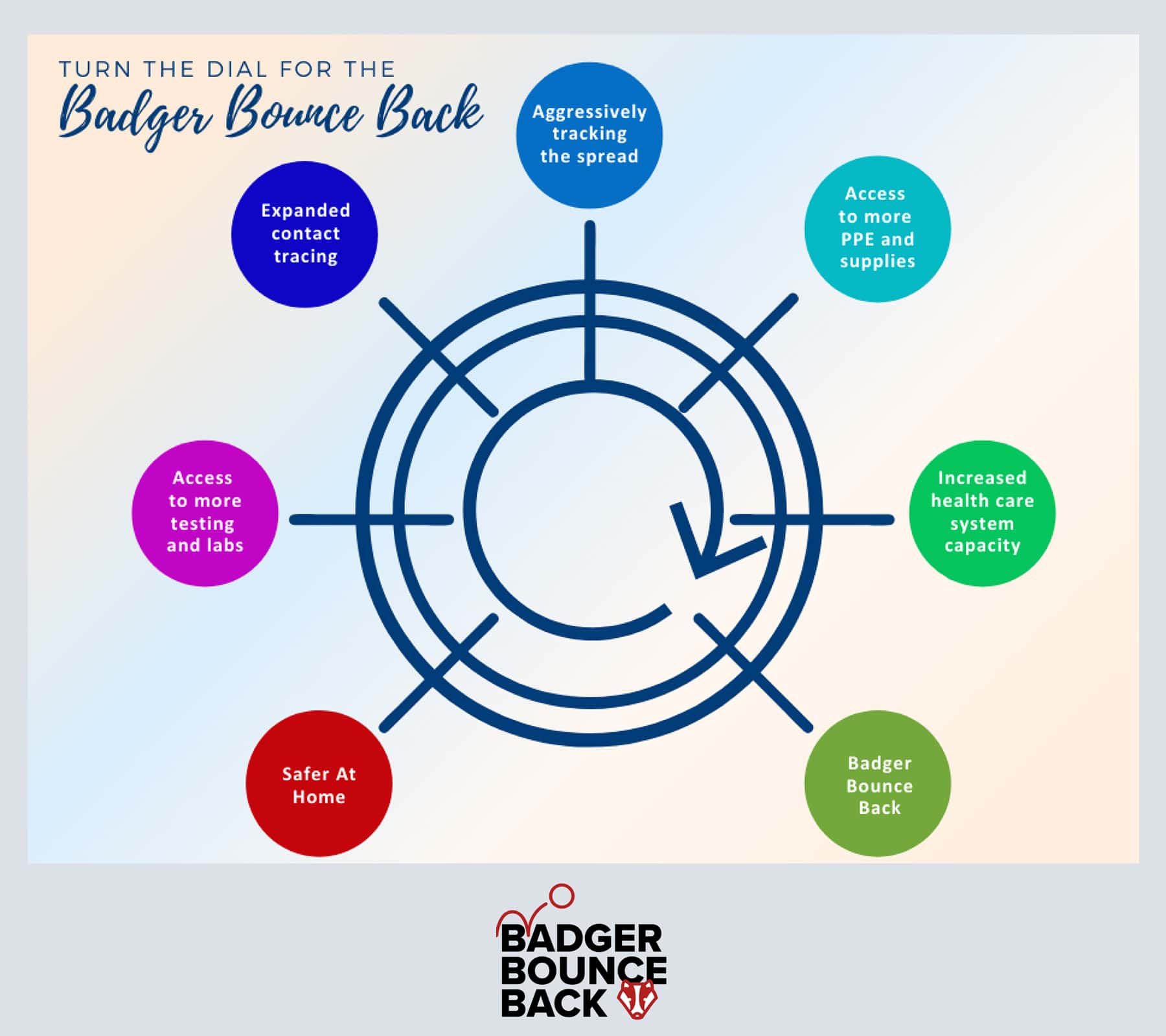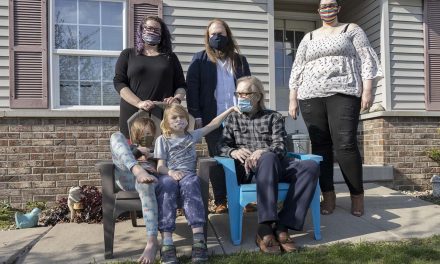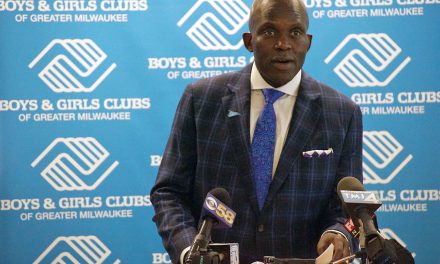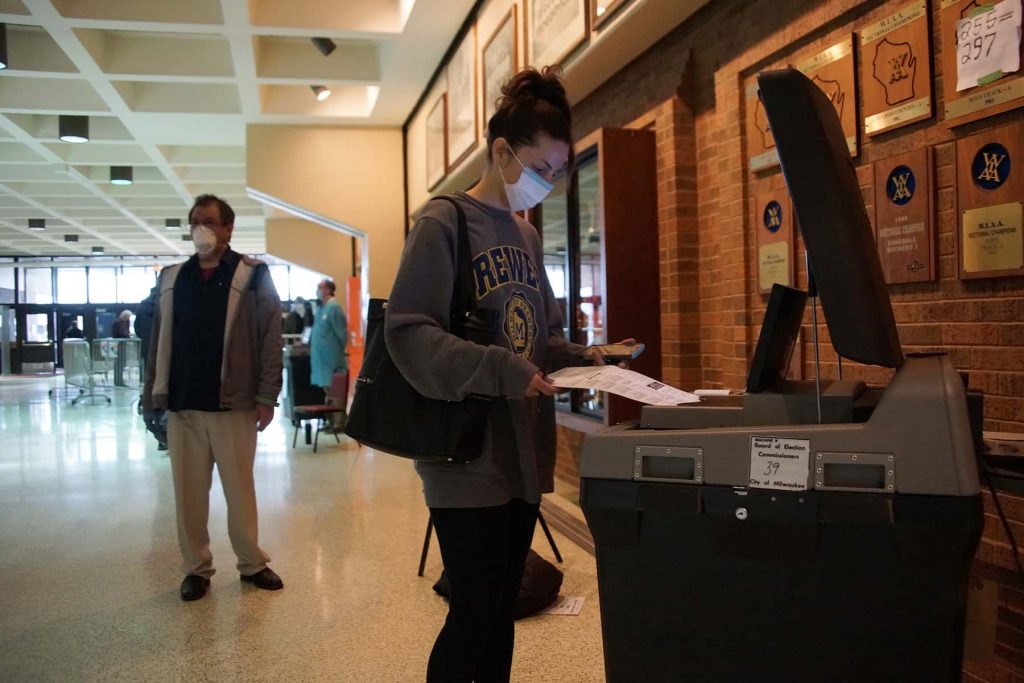
Governor Tony Evers announced Wisconsin’s “Badger Bounce Back” plan on April 20 which outlines important criteria for Wisconsin to be able to reopen its economy in phases and includes steps to make sure workers and businesses are prepared to reopen as soon as it is safe to do so.
In coordination with the announcement, at the direction of the governor, Wisconsin Department of Health Services Secretary-designee Andrea Palm issued Emergency Order #31 establishing the process and outlining the phases of the plan. The emergency order is available here.
“As we’ve learned over the past month, in the most difficult of circumstances, Wisconsinites will rise to the occasion, helping each other and working together to do what’s best for our families, our neighbors, and our communities,” said Gov. Evers. “That’s what the Badger Bounce Back is all about: our resilience as a people and as a state. I am excited and hopeful about this plan. While being safe at home continues to be important, this plan is an all-out attack on the virus and it begins the process of preparing our businesses and our workforce for the important planning that will result in the safe and logical reopening of our economy.”
The Badger Bounce Back plan is informed in part by the President’s Guidelines for Opening Up America Again that was issued by the White House on April 16, 2020. Currently, Wisconsin does not meet the criteria the White House established to start reopening our state. The Badger Bounce Back plan takes important steps to get the state of Wisconsin there.
The goal of the Badger Bounce Back plan is to decrease cases and deaths to a low level, and increase capacity in our healthcare system so the phased reopening of businesses is possible. As part of that plan the state will be working to increase access to more testing and expand lab capacity. Under the Badger Bounce Back plan, everyone who needs a test should get a test. The state is setting a goal of 85,000 tests per week, averaging about 12,000 tests per day.
Next, the state will be expanding contact tracing and more aggressively tracking the spread with the goal of every Wisconsinite who tests positive being interviewed within 24 hours of receiving their test results and their contacts being interviewed within 48 hours of test results.
Additionally, the state will continue to pursue every avenue to grow Wisconsin’s supply of personal protective equipment (PPE) for healthcare and public safety entities to conduct COVID-19 testing, patient care, and public safety work. Finally, the plan works to bolster healthcare system capacity where patients can be treated without crisis care and there are more robust testing programs in place for at-risk healthcare workers.
The state will be looking for a downward trajectory of influenza-like illnesses and COVID-19 symptoms reported within a 14-day period, and a downward trajectory of positive tests as a percent of total tests within a 14-day period. When the state has seen these efforts be successful, Wisconsin can begin to turn the dial, re-open the state, and get businesses and workers back on their feet.

